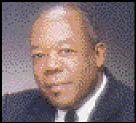
CrawfordBarbara Gayle, Staff Reporter
Hotelier John Sinclair got a record award of $110 million on Friday when the Court of Appeal dismissed an appeal brought by the Government-owned Financial Institutions Services (FIS) and made a pronouncement as to how a bank should handle unauthorised overdraft facilities.
The court, in dismissing the appeal, upheld a $70 million Supreme Court award which was made in favour of the 65-year-old hotelier and his companies Negril Negril Holdings and Negril Investment Co. Ltd. in July 1997. The $70 million which the Supreme Court awarded was lodged in an escrow account at the National Commercial Bank (NCB) and has since accrued interest.
"Where no overdraft limit is authorised once the customer draws a cheque in excess of funds in the account and the bank honours the cheque, that cheque is regarded as an unauthorised overdraft. In that situation a higher rate of interest would be payable than in a case where the overdraft is authorised. The rate of interest payable on overdrafts must be communicated to the customer and moreso where that interest is sought to be compounded. The duty arise moreso, in circumstances where the overdraft is unauthorised and penal rates are likely to be charged. This situation is even more compelling in circumstances where there may exist between banker and customer, a fiduciary relationship," the court ruled in its majority decision.
Michael Hylton, Q.C., Solicitor General told Sunday Business on Friday that there was going to be an appeal to the United Kingdom Privy Council.
The court said there was a formula in existence from which a court could ascertain with certainty, what was "the bank's usual rate of interest on overdrafts," to be applied to the companies' accounts. It was the court's finding that in addition to the "charging of compound interest on overdrafts, the bank instituted penal interest rates, described variously as default, penalty or excess rates, in circumstances where the companies' accounts (1) exceeded the overdraft limit imposed, or (2) operated in overdraft where no such agreement was agreed, an unauthorised overdraft".
The court ruled that the agreement to pay a default rate of interest must be an expressed one which is clear and unambiguous. The bank had contended that the interest rates were on the monthly bank statements. The court said further that the contract to operate current account made no reference to the right of the bank to charge compound interest. "The particular words which in law materially affect the rights of the parties in the contract to operate the current account are, "at the bank's usual rate of interest on overdrafts."
The court ruled that those words were void for uncertainty and therefore unenforceable.
Mr. Sinclair had filed the suit in the Supreme Court in 1995 complaining about the excessive interest rates which Century National Bank had charged his companies as compound interest. He had borrowed money to build the Negril Gardens Hotel in Westmoreland and refurbish the Gloucestershire Hotel in Montego Bay. FIS was substituted as the respondent after the Government closed the Century financial entities in 1996.
In 1990 Mr. Sinclair went to Don Crawford, the then head of the Century financial entities to enquire about his total indebtedness. Mr. Crawford wrote $63 million on a piece of paper and gave it to Mr. Sinclair. Mr. Sinclair said he "swore" when he saw the figure because he thought he had owed only $17 million. Sinclair paid the money and then sued the bank.
The court ruled that the bank was not entitled to any compound interest payable on the companies' overdraft balances. Also that the contract did not entitle the bank to vary the rates of interest chargeable on any overdraft balance in the current accounts. The court set aside the mortgages which would have come into operation on the date of execution. FIS has been ordered to render a proper account in respect of all the accounts operated by the companies. FIS has also been ordered to pay all sums found to be due and owing to the companies at the rate of interest of 52 per cent from September 1992 until July 18, 1997 when the judgment was handed down in the Supreme Court.
The Court of Appeal, comprising Justice Henderson Downer, Justice Paul Harrison and Justice Ransford Langrin heard the appeal. Justice Downer dissented.
In his dissenting judgment, Justice Downer said there was no fiduciary relationship in equity between the bank and the companies. He said the current accounts were governed by the contracts to operate them dated Novem-ber 15 and December 14, 1986. The contracts, he said, enabled the bank to charge compound interest at the bank's usual rate as decided by settled authority. He said the bank was entitled to vary the interest rates and inform the companies by notation on the periodic statements as was done by the bank in Mr. Sinclair's case.
The judge said it was permissible for the bank to charge penal rates of interest on unauthorised overdrafts which did not amount to penalties. "In the instant case the Mr. Sinclair companies did not allege and prove that the penal interest rates charged amounted to penalties," the judge said.
FIS, in its appeal to the Privy Council, will be relying on the dissenting judgement of Justice Downer.
Mr. Sinclair's companies were represented by Hugh Small, Q.C., Pamela Benka Coker, Q.C., Christopher Honeywell and Helga Mc-Intyre, instructed by Mc-Donald Millingen and Co.
FIS was represented by Donald Scharschmidt, Q.C., Michael Hylton. Q.C. and Dave Garcia, instructed by Myers Fletcher and Gordon.
















